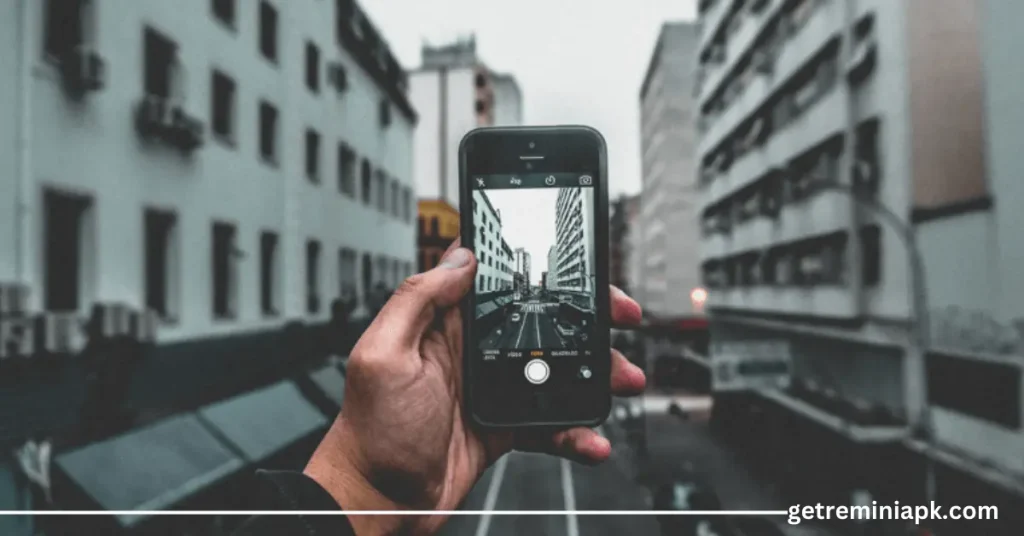Throughout history, the use of AI in photography has evolved. The art of photography requires some technical skills, creativity, and an eye for detail. It was traditionally the photographers’ responsibility to master the technical aspects of photography, such as shutter speed, aperture, ISO, and lighting, in order to capture the perfect image.
After the emergence of AI, the progress of photography has been revolutionary, and photography has become simple and more accessible. Artificial Intelligence has made it possible for anyone to take professional-quality photos without any prior knowledge of photography.
AI has transformed how we capture, edit, and sharpen photographs, making the process more efficient and creative. As a result of technological advances, photographers can now take their art to new heights.
AI In Photography
In this modern era, many developers integrated AI into Photography. AI photography means the use of artificial intelligence in photography With the help of these AI photography software and apps, you can enhance the quality of your images, and automatically adjust the color of photos.
You can access a range of features in these Apps to enhance your photos that are not possible with traditional photography methods.
AI in photography is changing how we capture and edit photos like a professional, providing a range of new possibilities and features. Here are some examples of how AI is being used in everyday photography.
Automatic Color Adjusting
A major advantage of AI in photography is its ability to adjust your photos’ colors automatically. The colors in pictures can be easily adjusted with AI-powered software to become more vibrant and eye-catching.
The software or App analyzes the image and applies the changes automatically. By automating color correction, time can be saved, and the process can be more efficient.
Image Recognition and Tagging
The recognition and tagging of images are other essential features of AI in photography. Using AI algorithms makes sorting and categorizing images by recognizing objects, faces, and impressions easier. A professional photographer with many images to sort and organize can take advantage of this feature.
In addition to easy image recognition, AI-powered tagging makes it easier for photographers to manage their collections by making it easier to find specific images.
Improvement In Pixelated Photos
Are you tired of pixelated photos that lack clarity and detail? The advancement of AI in photography now allows for enhanced, high-quality images to be created from blurry, low-resolution photos.
In addition to improving pixelated photos, AI can restore lost information and fill in missing details. The algorithm analyzes the pixelated image and uses surrounding data to create a more complete and detailed image using image interpolation.
AI in photography has several advantages when it comes to improving pixelated photos. First and foremost, AI algorithms can analyze the image and make adjustments in real-time.
As a result, improving pixelated photos can be much quicker and more efficient than manually adjusting each pixel in an editing program. Furthermore, AI algorithms can improve the quality of the image by making more precise adjustments to the pixels.
Background Recognition
The background can also be recognized and adjusted using AI in photography software. The background can be distracting in portrait photography, especially when the subject is in close-up. Using artificial intelligence, photographers can easily add a blurred or removed background to their images.
AI Photography Software and Apps
Software and apps for AI photography are available that offer many features and capabilities. Unlike traditional photography methods, these apps provide a range of tools and features for capturing, editing, and sharing images. Some of the most popular AI photography software and apps are below:
- Imagine AI
- Adobe Photoshop
- Lightroom
- Luminar AI
- Remini – AI photo enhancer
- Topaz
- PicsArt
In my opinion, Remini AI App is the best application for mobiles in terms of photo editing.
AI Camera VS Normal Camera

With advancements in technology, cameras have come a long way from traditional film cameras to digital cameras and, now, AI cameras. AI cameras are becoming increasingly popular, and it’s not hard to see why.
Here are the differences between AI cameras and normal cameras:
- Image Quality: The image quality of AI cameras is significantly better than traditional cameras because AI enables them to enhance images with artificial intelligence, resulting in high-quality images. A camera with an artificial intelligence feature will help you capture sharper and more vivid images by providing features like auto-focus and auto-exposure.
- Intelligent Features: Artificial intelligence cameras are equipped with features like facial recognition, scene detection, and object tracking, which are not available in conventional cameras. As a result, better images are produced because these features allow the camera to automatically adjust its settings depending on the scene or subject being photographed.
- Low Light Performance: Advanced image processing algorithms in AI cameras enable them to compensate for low light conditions, which produce clear and detailed images even in low light. On the other hand, the low light conditions of a normal camera result in grainy, blurry images.
- Price: Because of the advanced features and capabilities of AI cameras, they are typically more expensive than regular cameras.
The following table compares AI cameras with normal cameras:
| Features | AI Camera | Normal Camera |
|---|---|---|
| Image Quality | High-quality images with AI | Standard image quality |
| Intelligent Features | Facial recognition, scene tracking | No intelligent features |
| Low Light Performance | Advanced algorithms for low light | Struggles in low light |
| Video Quality | Advanced video recording features | Basic video recording features |
| Price | Expensive due to advanced features | Affordable for most consumers |
FAQs
Conclusion
New capabilities and features have been introduced to the world of photography through artificial intelligence. With artificial intelligence-powered photography software, everything from automatic color adjusting to image recognition and tagging has become more efficient and creative.
With AI technology advancing, the photography industry will continue to experience exciting advancements.
Leave a Reply